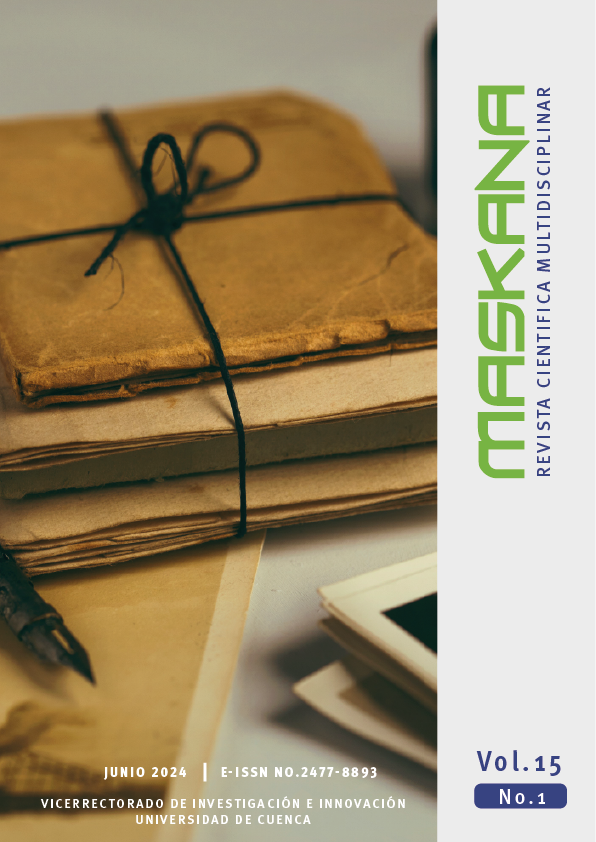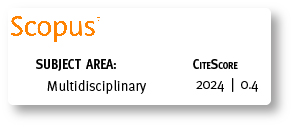Restatement of financial information: a first approach through the literature
DOI:
https://doi.org/10.18537/mskn.15.01.07Keywords:
accounting restatements, accounting quality, reliability, trust, stakeholdersAbstract
Restatement is the process of revising a company’s annual accounts to correct errors discovered after financial statements’ formulation. This process often involves a significant breach of management creditability. This study proposes a literature review using the PRISMA 2020 methodology and the VOS viewer software to identify the main lines of previous research. After analysing the results, three areas of study on accounting restatement have been identified: 1) the different proxies used, 2) the determinants or causes of restatement causes, and 3) the consequences and effects of the restatement process. The main conclusion is that, although restatement is not a very common process, it does entail a strong alteration of trust between agents and that it has some notable causes and consequences. Finally, potential future lines of research in this area are outlined.
Downloads
Metrics
References
Abbott, J.L., Parker, S., y Peters, G.F. (2004). Audit committee characteristics and restatements. Auditing: A Journal of Practice y Theory, 23(1), 69–87.
Abril, C., Camacho-Miñano, M.M. y Gimenez, E. (2024). Using Gamification to Overcome Innovation Process Challenges: A Literature Review and Future Agenda. Technovation (in press)
Agrawal, A., y Chadha, S. (2005). Corporate governance and accounting scandals. Journal of Law & Economics, 48, 371–406.
Albring, S.M., Huang, S.X., Pereira, R., y Xu, X. (2013). The effects of accounting restatements on firm growth. Journal of Accounting Public Policy, 32(5), 357–376.
Birkle, C., Pendlebury, D. A., Schnell, J., y Adams, J. (2020). Web of Science as a data source for research on scientific and scholarly activity. Quantitative Science Studies, 1(1), 363-376.
Briner, R.B., Denyer, D., y Rousseau, D.M. (2009). Evidence-based management: concept cleanup time? Academy of Management Perspectives, 23(4) 19–32.
Bhuiyan, M. B., Opare, S., y Ahmed, Z. (2024). Does audit committee busyness affect financial restatement? Evidence from audit committee share ownership. Australian Accounting Review, 34(1), 29-54. https://doi.org/10.111/auar.12416.
Chang, W. C., y Chen, Y. S. (2017). Shopping for accounting accruals and restatements. Emerging Markets Finance and Trade, 53(3), 554-562.
Crossan, M.M., y Apaydin, M. (2010). A multi-dimensional framework of organizational innovation: a systematic review of the literature. Journal of Management Studies, 47(6), 1154–1191.
Dechow, P., Ge, W., y Schrand, C. (2010). Understanding earnings quality: A review of the proxies, their determinants and their consequences. Journal of Accounting and Economics, 50(2-3), 344-401.
Flanagan, D. J., Muse, L. A., y O’Shaughnessy, K. C. (2008). An overview of accounting restatement activity in the United States. International Journal of Commerce and Management, 18(4), 363-381.
Fragoso, J. L., Peixinho, R. M., Coelho, L. M., y Paiva, I. C. (2020). The impact of financial restatements on financial markets: a systematic review of the literature. Meditari Accountancy Research, 28(6), 1119-1147.
Fox, Z. D., y Wilson, R. (2023). Double trouble? IRS’s attention to financial accounting restatements. Review of Accounting Studies, 28(4), 2002-2038.
Gleason, C. A., Jenkins, N. T., y Johnson, W. B. (2008). The contagion effects of accounting restatements. The Accounting Review, 83(1), 83-110.
Gong, S., Ho, N., Jin, J. Y., y Kanagaretnam, K. (2022). Audit quality and COVID-19 restrictions. Managerial Auditing Journal, 37(8), 1017-1037.
Gough, D. (2007). Weight of evidence: A framework for the appraisal of the quality and relevance of evidence. Research Papers in Education, 22, 213–228.
Gunther, J. W., y Moore, R. R. (2003). Loss underreporting and the auditing role of bank exams. Journal of Financial Intermediation, 12(2), 153-177.
Hennes, K. M., Leone, A. J., y Miller, B. P. (2008). The importance of distinguishing errors from irregularities in restatement research: The case of restatements and CEO/CFO turnover. The Accounting Review, 83(6), 1487-1519.
Herly, M., Bartholdy, J., y Thinggaard, F. (2020). A re‐examination of accruals quality following restatements. Journal of Business Finance & Accounting, 47(7-8), 882-909.
Hribar, P., y Thorne Jenkins, N. (2004). The effect of accounting restatements on earnings revisions and the estimated cost of capital. Review of Accounting Studies, 9, 337–356.
LaPorta, R., Lopez-de-Silanes, F., Shleifer, A., y Vishny, R. W. (1998). Law and finance. Journal of Political Economy, 106(6), 1113-1155.
Li, V., y Luo, Y. (2023). Changes in accounting estimates during the COVID-19 pandemic in the USA. Asian Review of Accounting, 32(2), 223-248. https://doi.org/10.1108/ARA-10-2022-0243
Li, H., Terjesen, S. y Umans, T. (2020). Corporate governance in entrepreneurial firms: a systematic review and research agenda. Small Business Economics, 54, 43–74.
Lin, P., Lee, S., Chen, X., y Yur-Austin, J. (2015). Highlights of financial restatements from 2000 through 2011. Management Accounting Quarterly, 17(1), 19.
Mafrolla, E. (2019). Accounting Restatements: A European Perspective. Giappichelli.
Morschheuser, B., Hamari, J., Koivisto, J., y Maedche, A. (2017). Gamified crowdsourcing: Conceptualization, literature review, and future agenda. International Journal of Human-Computer Studies, 106, 26-43.
Palmrose, Z. V., y Scholz, S. (2004). The circumstances and legal consequences of non‐GAAP reporting: Evidence from restatements. Contemporary Accounting Research, 21(1), 139-180.
Page, M. J., McKenzie, J. E., Bossuyt, P. M., Boutron, I., Hoffmann, T. C., Mulrow, C. D., ... y Moher, D. (2021 a). The PRISMA 2020 statement: an updated guideline for reporting systematic reviews. International Journal of Surgery, 88, 105906.
Page, M.J., McKenzie, J.E., Bossuyt, P.M., Boutron, I., Hoffmann, T. C., Mulrow, S. D., Shamseer, L., Tetzlaff, J. M. y Moher, D. (2021b). Updating guidance for reporting systematic reviews: development of the PRISMA 2020 statement. Journal of Clinical Epidemiology, 134, 103–112.
Pérez-Pérez, Y. (2020). El riesgo en la información financiera (Doctoral dissertation, Universidad Complutense de Madrid). https://docta.ucm.es/entities/publication/c5eff50e-acfe-423e-b8aa-d40b8e4204bb
Piedehierro, L. (21 de marzo de 2024). La CNMV pide a Grifols que reexprese parte de sus cuentas de 2022 y 2023 y no descarta “medidas correctoras”. El Español. https://www.elespanol.com/invertia/mercados/20240321/cnmv-pide-grifols-reexprese-parte-cuentas-no-ve-motivos-sancionarla/841666342_0.html
Plumlee, M., y Yohn, T. L. (2010). An analysis of the underlying causes attributed to restatements. Accounting Horizons, 24(1), 41-64.
Simón Ruiz, A. (28 de abril de 2022). El auditor obliga a Grifols a apuntarse como deuda la inyección de capital del fondo soberano de Singapur. El País. https://cincodias.elpais.com/cincodias/2022/04/28/companias/1651173931_649098.html
Street, D.A., y Hermanson, D. R. (2019). How do restatements affect outside directors and boards? A review of the literature. Journal of Accounting Literature, 43(1), 19-46.
Tranfield, D., Denyer, D., y Smart, P. (2003). Towards a methodology for developing evidence‐informed management knowledge by means of systematic review. British Journal of Management, 14(3), 207-222.
Upton, G., y Cook, I. (2002). Oxford Dictionary of Statistics. OUP.
Wu, Y.A., Kuang, Y.F., Lee, G. y Zhai, K. (2023). Do ties still bind? Analyst behaviour after financial restatements. Accounting & Finance, 1–36.
Zhang, Q., Tang, G., y Qin, X. (2023). Comment Letters and Reporting Quality: Evidence from Financial Restatements. Asia‐Pacific Journal of Financial Studies, 52(6), 924-948.
Zoiro Grima, A., García Benau, M. A. y Puello Martínez, M. C. (2004). Calidad, un nuevo concepto clave en el desenlace del proceso de armonización contable internacional. Spanish Journal of Finance and Accounting/Revista Española de Financiación y Contabilidad, 33(121), 313-347.
Published
How to Cite
Issue
Section
License
Copyright (c) 2024 M. Carmen Tejada Ximénez de Olaso, Begoña Navallas Labat, Maria del Mar Camacho Miñano

This work is licensed under a Creative Commons Attribution-NonCommercial-ShareAlike 4.0 International License.
Copyright © Autors. Creative Commons Attribution 4.0 License. for any article submitted from 6 June 2017 onwards. For manuscripts submitted before, the CC BY 3.0 License was used.
![]()
You are free to:
 |
Share — copy and redistribute the material in any medium or format |
 |
Adapt — remix, transform, and build upon the material for any purpose, even commercially. |
Under the following conditions:
 |
Attribution — You must give appropriate credit, provide a link to the licence, and indicate if changes were made. You may do so in any reasonable manner, but not in any way that suggests the licenser endorses you or your use. |
| No additional restrictions — You may not apply legal terms or technological measures that legally restrict others from doing anything the licence permits. |









